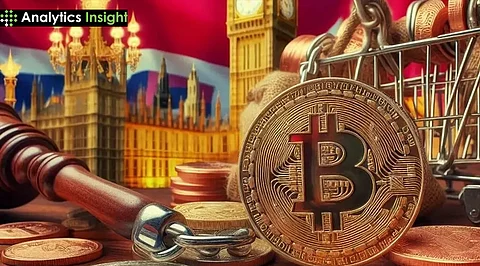The United Kingdom is preparing to compensate victims of a significant investment fraud linked to the seizure of approximately 61,000 Bitcoins, valued at around $6.8 billion. The perpetrator, Zhimin Qian, orchestrated a fraudulent investment scheme between 2014 and 2017 under her company, Tianjin Lantian, which defrauded over 128,000 individuals in China. Following her entry into the UK with fraudulent documentation, authorities began confiscating her assets in 2018. By 2021, the law enforcement agencies had finalized the seizure, marking it as one of the largest cryptocurrency asset recoveries worldwide.
The Metropolitan Police made further gains in April 2024, recovering an additional £67.3 million in cryptocurrency after Qian provided access to her digital wallets during her arrest. Two other Chinese nationals have been charged in the UK with laundering the illicit funds. Qian has since pleaded guilty to charges related to the acquisition of criminal property, while her accomplice was convicted earlier by a jury. This investigation stemmed from an initial fraud case in Tianjin, China, which revealed the extensive scam targeting retail investors.
Legal Uncertainty Surrounding Compensation Process
The UK government is currently deliberating how to distribute the seized Bitcoins. Prosecutors have suggested that they will establish a compensation program for the victims, although details regarding eligibility criteria and payment processes remain undisclosed. Victims have already initiated claims in UK courts to recover their lost investments. Legal representatives for those affected have highlighted the profound financial and personal distress caused by the fraud.
William Glover, an attorney representing some of the victims, stressed the damage inflicted on families, marriages, and businesses due to the cryptocurrency scam. While there are demands for restitution, legal experts caution that the UK might retain ownership of the confiscated assets under the Proceeds of Crime Act. Nick Harris, CEO of CryptoCare, warned that unless a victim-first policy is implemented, the government might redirect the funds to support its budgetary needs. Historically, confiscated assets have often been utilized to finance government initiatives, such as the Asset Recovery Incentivization Scheme.
Implications for Global Cryptocurrency Regulations
This case has garnered global attention and could significantly influence regulatory discussions surrounding the seizure of digital assets and victim compensation. The $6.8 billion recovery surpasses previous high-profile cases, including the infamous Silk Road asset seizures. With Bitcoin currently valued at $111,436.30, the significance and visibility of such cases are escalating.
Market analysts predict that the outcomes of this case may shape future policies regarding how governments handle confiscated cryptocurrencies. While the United States retains billions in digital assets for potential future use, Germany has opted to sell its holdings. The UK now faces the challenge of balancing public interest, justice for victims, and establishing regulatory precedents in the aftermath of this monumental asset seizure.








































































